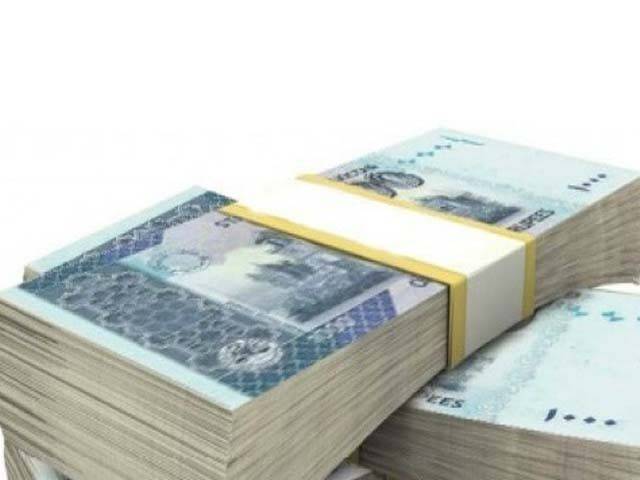ISLAMABAD - The Economic Coordination Committee (ECC) of the Cabinet on Thursday approved the Ramadan package worth of Rs2 billion to provide basic food commodities at subsidised rates at state-run Utility Stores Corporation during the holy month.
The ECC, which met under the Chairmanship of the Federal Minister for Finance, Senator Mohammad Ishaq Dar has approved, in principle, Relief Package for the Holy Month of Ramadan 2014 amounting to Rs.2 billion.
The Utility Stores Corporation (USC) during last year’s Relief Package provided subsidy of Rs.1.65 billion and this year proposed Rs.1.624 billion for the Package. The ECC decided to approve Rs.2 billion for the Relief Package and the details of the relief on essential commodities will be submitted by the USC in the next ECC meeting for consideration. The government would provide subsidy on more than 100 items. Sources said that under the Ramadan package, price of flour (atta) is likely to be reduced by Rs 6 per kg at USC. Similarly, the prices of pulses, ghee, cooking oil and besan may decrease by Rs 10 per kg. Sources said that Finance Minister asked the Managing Director (MD) USC to mention the price of flour on its bags.
Meanwhile, the top economic decisions making body of the country has lifted the ban on the import of gold and gold jewellery. However, the committee attached conditions with lifting a gold import including imports under savings in any one-month period are restricted to a maximum of 10 kg per exporter. The penalty of default in export commitment is 5pc of levyable duty under SRO 266, which is practically “Nil”, as Customs duty and sales tax on import of gold is 0pc. Therefore, import authorisation under the aforementioned savings clause is cancelled, if the exporter fails to honour the export commitment, within the stipulated timeframe. All import authorisations issued previously under SRO 266 are cancelled for those exporters, who do not opt for fresh registration or fail to apply for new jewellery Passbook with effect from May 15, 2014. The maximum amount of gold imported under any single transaction should not be exceeded 10 kg. The ban imposed under SRO 760 on the import of gold, vide SRO 53(I)/2014 is lifted. The ban on commercial import of gold imposed vide SRO 52(I)/2014, dated 24.1.2014 is lifted.
The ECC decided to withdraw SRO 15(I)/2010 which exempted cotton yarn import from custom duty of 5pc in order to check import of cotton yarn which is increasing rapidly and the cotton yarn industry of Pakistan has started feeling the heat of extraordinary liberal tariff regime. The ECC also decided to withdraw its earlier decision of providing the mechanism of joint expert mediation between SNGPL, Power Purchasers and IPPs namely Saif, Sapphire and Orient. It may be mentioned that the three IPPs claimed Force Majeure Event (FME) under the respective Gas Supply Agreements (GSAs) from SNGPL, owing to its inability to supply gas to the projects due to rupture of one of its gas pipelines by terrorist activity during year 2011. It was decided that since the IPPs are not willing to accept the out of scope collective mediation which is binding in nature, the dispute resolution mechanism of the respective Project Agreements may be followed.
The meeting was also attended by Senator Pervaiz Rashid, Minister for Information, Broadcasting and National Heritage, Khawaja Mohammad Asif, Minister for Water and Power, Ahsan Iqbal, Minister for Planning, Development and Reform, Ghulam Murtaza Khan Jatoi, Minister for Industries and Production, Shahid Khaqan Abbasi, Minister for Petroleum and Natural Resources, Zahid Hamid, Minister for Science and Technology, Ms Anusha Rehman Khan, MOS for I.T & Telecom, Federal Secretaries and senior officials of the government.
Friday, April 19, 2024
ECC approves Rs2b Ramazan Package
| Govt to provide subsidy on more than 100 items | Price of flour likely to be reduced by Rs 6/kg

Caption: ECC approves Rs2b Ramazan Package
China's EV tech offers opportunity for Pakistani auto industry
9:27 AM | April 19, 2024
PM calls for reforms to reduce circular debt
April 19, 2024
Pakistan, Turkiye to expand defence ties
April 19, 2024
20pc Discos employees involved in power theft: Minister
April 19, 2024
Five govt officials shot dead in D I Khan
April 19, 2024
Hepatitis Challenge
April 18, 2024
IMF Predictions
April 18, 2024
Wheat War
April 18, 2024
Rail Revival
April 17, 2024
Addressing Climate Change
April 17, 2024
Justice denied
April 18, 2024
AI dilemmas unveiled
April 18, 2024
Tax tangle
April 18, 2024
Workforce inequality
April 17, 2024
New partnerships
April 17, 2024
ePaper - Nawaiwaqt
Advertisement
Nawaiwaqt Group | Copyright © 2024





